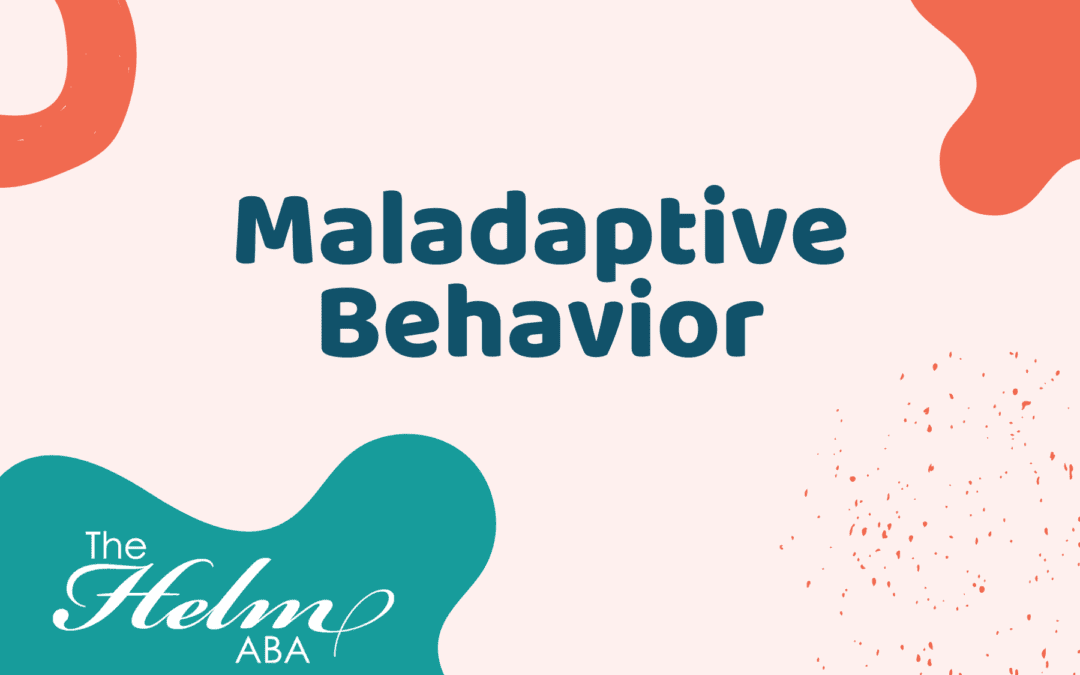Parenting is a journey filled with love, joy, and challenges, especially when raising a child with autism. One significant challenge parents often face is navigating maladaptive behavior. At least, that’s what we call it in ABA. When we say “maladaptive behavior” what we really mean is behavior that interferes with an individual’s activities of daily living or ability to adjust to and participate in particular settings. So to put it simply, behaviors that cause problems.
So now that we know wheat maladaptive behavior means, let’s explore some strategies and insights to help you understand and manage the stress that goes along with it.
Understanding the Roots:
Maladaptive behaviors often serve as a form of communication, expressing needs, discomfort, or frustration. As parents, the first step is to approach these behaviors with curiosity and a desire to understand the underlying causes. By identifying triggers, parents can develop tailored strategies to address specific needs and minimize stress for both themselves and their children.
Creating a Calming Environment:
The power of the environment should not be underestimated. Simple adjustments, such as minimizing sensory stimuli, establishing routines, and providing a designated quiet space, can significantly contribute to a more calming atmosphere. Consistency in the environment helps children with autism feel secure, reducing the likelihood of maladaptive behaviors.
Communication and Visual Supports:
Clear communication is essential, and for many children with autism, visual supports can be particularly beneficial. Visual schedules, social stories, and visual cues enable children to better comprehend expectations and transitions, fostering a sense of predictability that can mitigate anxiety and reduce maladaptive behaviors.
Positive Reinforcement and Reward Systems:
Encouraging positive behavior through reinforcement and reward systems can be an effective strategy. Celebrating small victories and offering praise or rewards when children exhibit desired behaviors not only reinforces positive actions but also helps in building self-esteem and a sense of accomplishment.
Self-Care for Parents:
Dealing with maladaptive behavior can be emotionally draining for parents. Prioritizing self-care is not only essential for personal well-being but also contributes to effective parenting. Whether it’s seeking support from a therapist, joining a parent support group, or taking moments for self-reflection, nurturing one’s own mental health is crucial.
We cannot emphasize this enough. Too many of us are incredible at making excuses not to take care of ourselves, but as cliche as it sounds, you can’t fill someone else’s bucket when yours is empty. So do something kind for yourself. Put yourself first for a change!
Professional Support and Collaboration:
Parents don’t have to navigate this journey alone. Seeking guidance from professionals, such as the behavior analysts or therapists at The Helm, can provide valuable insights and personalized strategies. Collaborating with educators, therapists, and support networks creates a holistic approach to addressing maladaptive behaviors, ensuring a unified support system.
Parenting a child with autism requires resilience, compassion, and a commitment to understanding the unique needs of each child. By approaching maladaptive behaviors with patience, empathy, and a proactive mindset, parents can forge a path towards effective strategies, creating an environment where both parents and children can thrive.

